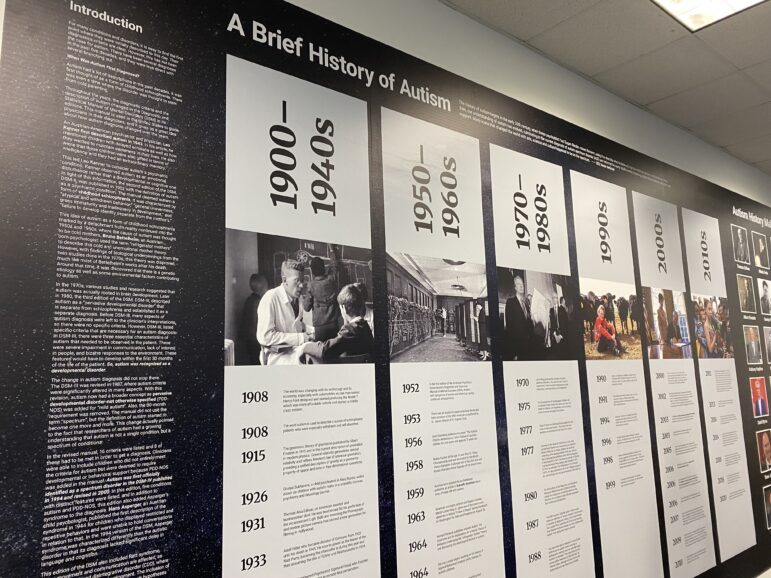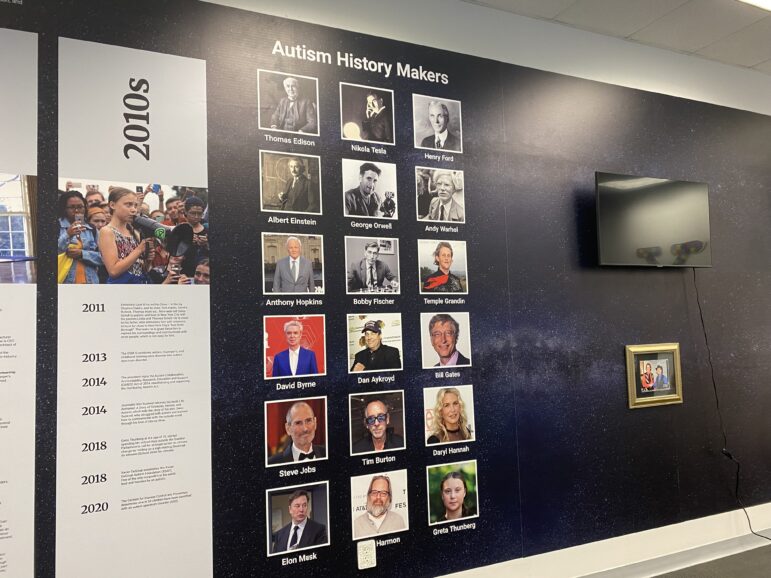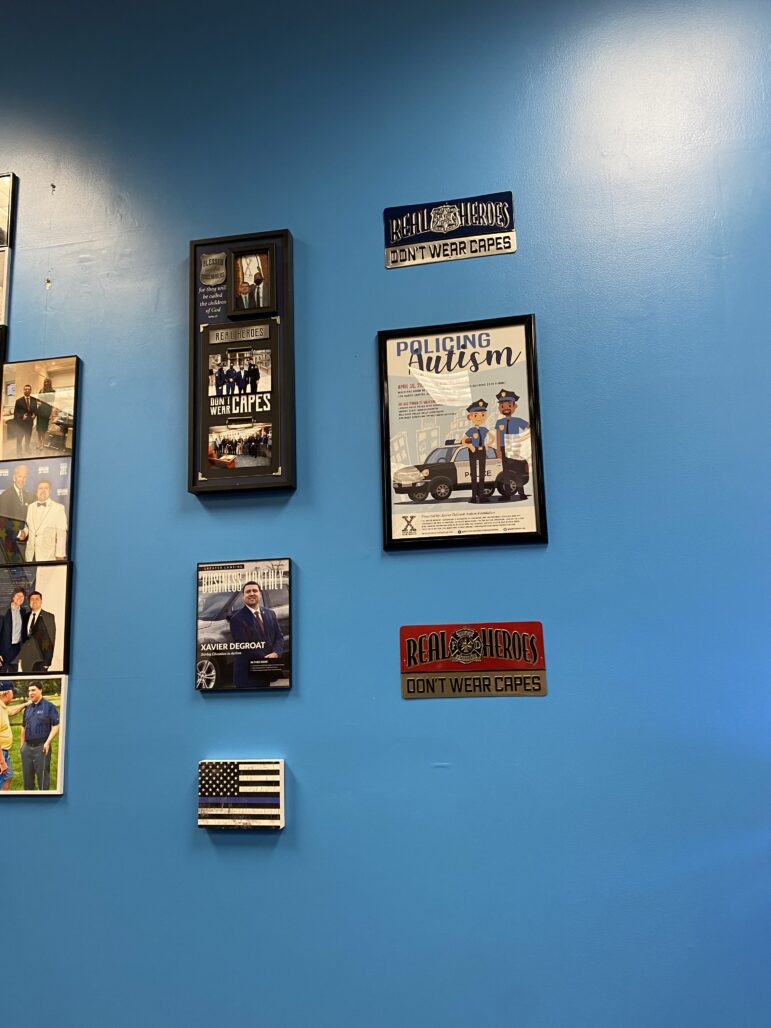The nonprofit Xavier DeGroat Autism Foundation held on Feb. 4 its ribbon-cutting ceremony to open the Autism History Museum in the Meridian Mall.
To Xavier DeGroat, founder and CEO of the Xavier DeGroat Autism Foundation, the cause is personal.
“It’s all because of my own challenges I faced as a child being labeled, being teased and harassed a lot,” DeGroat said. “And, now, I want to eradicate all of that and get more awareness and increase so we can have acceptance for autism at the end of the day.”
DeGroat founded in 2018 the Xavier DeGroat Autism Foundation to advocate for people with autism through education, economic opportunities and humanitarian efforts, according to its website.
The museum features an exhibit showcasing the history of autism in the U.S. that begins in the early 20th century. The timeline outlines a brief history of how autism came to be known and historical figures on the spectrum.

Sophia Kalakailo
The museum features a timeline outlining a brief history on how autism came to be known beginning in the early 20th century.The exhibit highlights prominent figures on the autism spectrum from Thomas Edison and Albert Einstein to people alive today such as Elon Musk and Greta Thunberg.

Sophia Kalakailo
Prominent figures on the autism spectrum are displayed on the wall.“We want to inspire families to show that their kids can be strong like some of these mindful individuals that made history,” DeGroat said.
The museum also features “sensory-friendly” exhibits for children, said DeGroat. as As he pointed to various toys and a fish tank, he said he was inspired by the television show, Mister Rogers’ Neighborhood.

Sophia Kalakailo
The fish tank is featured in the museum as part of its “sensory-friendly” exhibits.DeGroat said the museum will also host storytime events for children using books donated by Schuler Books.
On one wall in the museum is a series of photos and posters dedicated to police. This includes a “Blue Lives Matter” flag. DeGroat said Blue Lives Matter is a counter-movement to Black Lives Matter, which protests the disproportionate killings and violence against Black people by police.
Through the foundation, DeGroat sparked changes in law enforcement allowing Michigan police to see if an individual has a communication disability when scanning their driver’s license or license plate.
According to a 2019 study by the Children’s Hospital of Philadelphia, approximately 1 in 5 adolescents with autism spectrum disorder will be stopped and questioned by a police officer before the age of 21. Police interactions lead to more injuries and fatalities for people with disabilities, including autism.

Sophia Kalakailo
Pro-police decorations that include a Blue Lives Matter flag are on one wall of the museum. Xavier DeGroat, the CEO and founder of the autism foundation, was key to implementing a policy that allowed law enforcement in the state to see a communication disability when scanning a driver’s license or license plate.The museum’s biggest sponsor is the Dantonio Family Foundation. Other donors include the Michigan State University Federal Credit Union, Boji Group, Sparrow Hospital, Coldwell Banker, Granger, Greater Lansing Michigan, Lansing Automakers Federal Credit Union, McLaren and WLNS-TV.
Ron Boji is president of Boji Group LLC, a real estate development, property management and construction management firm and another donor to the museum.
”I’ve always had a place in my heart for autism. Our family has never been impacted by it, but I’ve seen it on many occasions,” Boji said. “And I’m inspired by Xavier’s opportunities and what he’s trying to do and bring it to attention and I wanted to do it philanthropically.”
Kenton Jenkinson attended the ribbon-cutting event on behalf of his family. He said the museum is important to drawing awareness to autism.
“The more people are aware of (autism), the better they have knowledge of dealing with autism and seeing the benefits of it and how they can live with it,” Jenkinson said.